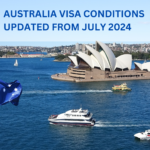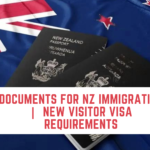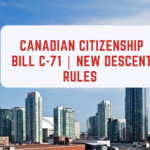
Study Permits 12900 – Nova Scotia 2024
For foreign students looking to study in Canada and receive a top-notch education, Nova Scotia, known for its gorgeous scenery and welcoming communities, is a shining example. The province is reiterating its commitment to promoting a lively and diverse learning environment with the release of its 2024 study permit allocation plan. Let’s examine the intricacies of Nova Scotia’s allocation approach and its implications for potential students considering pursuing education in this coastal region. Acknowledging the Importance of Study Permits In order for international students to pursue their academic goals in Canada, study permits are essential documentation. These permits, which are granted by Immigration, Refugees and Citizenship Canada (IRCC), enable people to register at approved learning institutions (DLIs) anywhere around the nation. Like other provinces, Nova Scotia is essential to the smooth assimilation of foreign students into the educational system. Nova Scotia’s Study Permit Allocation for 2024 The federal government has allotted 12,900 study permits to Nova Scotia for the year 2024 according to the most recent allocation plan. Even while this is a little less than in prior years, it nevertheless shows how committed the province is to maintaining a sustainable and equitable approach to the intake of international students. In spite of the decline, Nova Scotia is unwavering in its commitment to offering top-notch instruction and life-enriching opportunities to students from all over the world. Distribution Among Designated Learning Institutions (DLIs) The IRCC has carefully chosen and authorized 32 recognized learning institutions to receive Nova Scotia’s study permits. The foundation of the province’s educational system is made up of these establishments, which include language schools, private career colleges, community colleges, and universities. Every DLI adds to the academic excellence and diversity that characterize the educational ecology of Nova Scotia. Breakdown of Permit Allocation The allocation of study permits in Nova Scotia is as follows: Insights from Provincial Leadership Minister of Advanced Education for Nova Scotia, Brian Wong, highlights the province’s deliberate process for awarding study permits. This distribution technique has been informed by factors such as neighborhood growth and enrollment trends. Minister Wong emphasizes the value of international education to the development and economy of the province while restating Nova Scotia’s commitment to pushing for a larger grant from the federal government. Implications of Federal Cap and Policy Changes On January 22, the federal government imposed a cap on study permits, which is part of a larger initiative to control the number of international students admitted and improve the long-term viability of Canada’s educational system. Permit renewals and master’s or graduate-level programs are among the exceptions to this cap, even if it might have an effect on the total number of permits issued. The cooperative character of immigration laws highlights the necessity of wise distribution and coordination between national and local government authorities. Integration of Provincial Attestation Letters (PALs) The addition of Provincial Attestation Letters (PALs) to completed study permit applications is a substantial policy change. These letters are recommendations for overseas students applying to DLIs, and they are provided by provincial authorities. In addition to guaranteeing a smooth application process, the requirement highlights the cooperative role that provinces play in supporting and enabling student mobility. Regional Perspectives: Prince Edward Island According to current developments, 2,000 study licenses for foreign students will be granted by Prince Edward Island (PEI) in 2024. College de l’Ile, Holland College, and the University of Prince Edward Island are the three DLIs in PEI that will share these permits. PEI is dedicated to creating a friendly and accepting atmosphere for international students, and this allocation reflects that commitment. Provincial Disbursement Strategies Some governments, like British Columbia and Ontario, have published their plans for allocating study permit allotment. Ontario’s emphasis on public colleges and universities highlights the province’s dedication to academic quality and accessibility. British Columbia, on the other hand, has demonstrated a commitment to diversity and innovation in education through its balanced approach between public and private DLIs. Navigating the Path Forward Interested students are urged to investigate the many options available in Canada as Nova Scotia and other jurisdictions negotiate the changing international education scene. Nova Scotia continues to be a popular destination for international students because of its rich cultural legacy, top-notch institutions, and encouraging communities. Aspiring students can start their academic path with clarity and confidence by keeping up with policy developments and making use of official channels’ materials, such the website of the Government of Canada. Conclusion The province of Nova Scotia’s decision to award study permits to foreign students in 2024 is a testament to its continued efforts to promote an inclusive and friendly learning environment. In spite of obstacles brought about by legislative and regulatory changes, Nova Scotia is committed to offering international students a top-notch education and engaging experiences. By means of deliberate distribution, vigorous lobbying, and cooperation between national and local government, Nova Scotia maintains its standing as one of Canada’s top locations for foreign students. For details about study permits, go to the website. Explore the list of designated learning institutions on the official website. For further updates on visa and immigration, click here..






